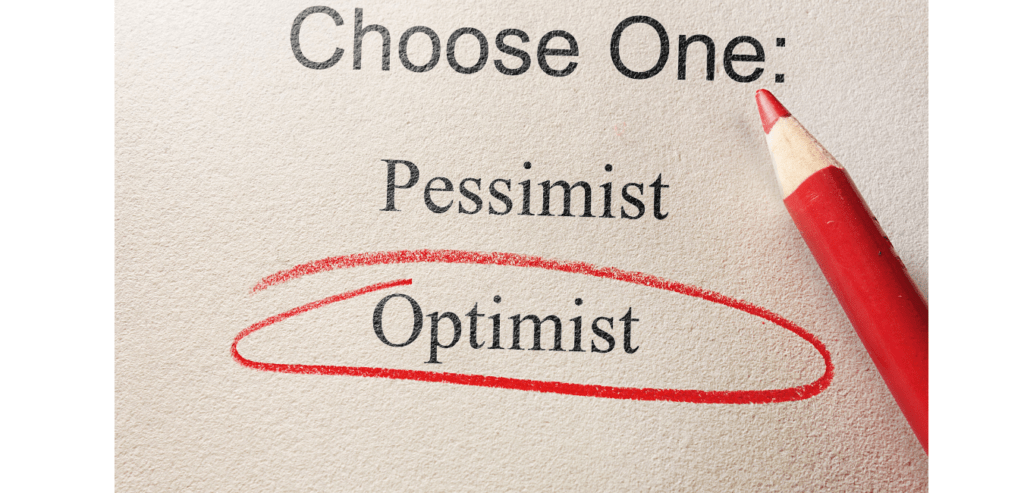Research shows that optimistic people can benefit from better physical and mental health because of their positive outlook on life. So what if you happen to be more of a pessimist? Does that mean that you are doomed to poor health and depression? Not at all!
While some people are born with a cheerful disposition, others are more prone to a negative outlook. Many factors cause some people to be pessimistic. It’s not usually a conscious choice that people made. It’s often one thing that people do not like about themselves and wish they could change. While some people are genetically predisposed to pessimism, others become pessimistic because of certain external factors such as:
- Job loss
- Injury and illness
- Divorce or a bad breakup
- Childhood trauma
- Temperament
- Environment
- Economic status
- Grieving a loved one
While there are many valid reasons why someone may be more pessimistic than optimistic, they do not have to stay stuck with this disposition. Fortunately, everyone has the power to choose to change and transform into the best version of themselves. We can create a better mindset by following some simple steps.
Optimism Is A Choice
Those who have come through a set of negative circumstances in their life may develop a negative or victim mindset. There may be bitterness and anger that eat away at them or a deep sadness of things that they lost. It’s hard to “look at the bright side” when you’ve been in a time of darkness for some time. It’s important to have compassion and not be quick to judge someone who seems negative all of the time. In fact, you may not realize the difficulties they have experienced. However, while we may not be able to change our circumstances, we can change our reactions and attitude towards these circumstances. In other words, we don’t have to allow the circumstances to control us. We have the power to overcome simply by making a decision to do so.
How Pessimists Can Become More Optimistic
People who have an optimistic mindset may still feel the impact of negative circumstances in their own lives. However, they tend to choose a more constructive and useful attitude. They evaluate their choices on how to react and decide to make the best decision within their control. You can’t always change your circumstances in life, but you can change the way you react to them. The following are some best practices for choosing to become more optimistic.
Make The Decision To Change
It is never easy to change your personality, but it is still doable. The individual must want to change. Making this type of change because someone is pressuring them can backfire and make the pessimist much more bitter and resentful. With their negative mindset, they may feel like a victim, that they are not “good enough” the way they are. The individual must take personal responsibility and recognize their behavior and desire to change to better themselves. A pessimist is not usually open to advice on the subject, either. Chances are, if you tell a pessimist that they can change their outlook and change their life, it will be met with cynicism. They will have more chances of success if they want to change because they seek more joy and fulfillment in their lives.
Switch Your Focus
What you focus on is what you will see. Constantly focusing on what is wrong and what doesn’t work will get you more of those same results. Switch your focus instead to what did or can go right. You can almost always find positive circumstances in your life to focus on instead of the negative ones. When you feel stuck in negativity, ask yourself these questions:
- What DOES go right in your life?
- What do you have to be grateful for?
- What does work?
Practice gratitude and count your blessings daily. Create a customized list of affirmations. Put it on your bathroom mirror, and every time you wash your hands, brush your teeth, or look in the mirror, read the gratitude list out loud.
Change Your Perception
When faced with adversity, a pessimist will see only clouds with no silver lining. This step may be more difficult and require extra intentional focus. Try to find some semblance of silver lining in the circumstance. View the end of something as a new beginning or a lesson learned. Try to find the deeper meaning in what happened instead of always looking through a negative lens.
Avoid Internalizing
While optimists look for the good in situations, pessimists often see the bad, even if it hasn’t happened yet. It may help to avoid internalizing the circumstances as personal to themselves. Try to look at the bad situation that happened as just an unfortunate event, not because you had “bad luck.” Move away from the victim mentality and have a broader view of the situation. Avoid attaching the unfortunate situation as having any personal meaning.
Tell A Different Story
Another way to move away from negative thinking is to tell a different story to yourself. Instead of seeing the story around the situation as all black, a pessimist can choose to see it in black and white. For example, a pessimist may say they have bad luck. Everything always happens to them, and everyone else gets what they want, etc. If you find yourself thinking or saying these things, you are in victim mode. Move beyond it by telling yourself a different story. Or, remind yourself that something negative happened because it just happened – there is no story attached, and it is not personal to you.
Reflection Time
We all have a little bit of pessimism within us at times. We go through good times and bad times in life. The key is to avoid getting stuck in a negative thinking pattern that can drag us down and keep us there.
In summary, when you feel the pessimism overtaking you, try as many of these steps as needed to shift your mindset:
- Make the decision to change. Don’t allow yourself to stay in a negative cycle. Decide for yourself that you want better for yourself.
- Switch your focus. Decide to stop focusing on what went wrong. Ask yourself the questions to shift your focus. What DOES go right in your life? What do you have to be grateful for? What DOES work for you?
- Change your perception. Try to find the silver lining in every circumstance. Look at it as a lesson learned. Every ending is a new beginning, a chance to start over.
- Avoid internalizing. Avoid attaching the circumstance as personal to you. Always avoid the victim mentality. Things just happen. You don’t have “bad luck.”
- Tell a different story. Move beyond the victim mode by telling yourself a different story. Instead of seeing everything in black, try to look at the situation in black and white. Don’t take it personally and remove yourself from the story altogether, when possible.
Can you think of a time in your life where you felt like a victim or like the unfortunate circumstances were keeping you from getting what you want? What did you do to overcome the situation?

